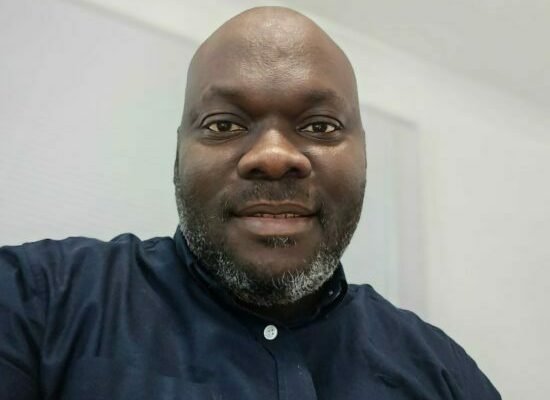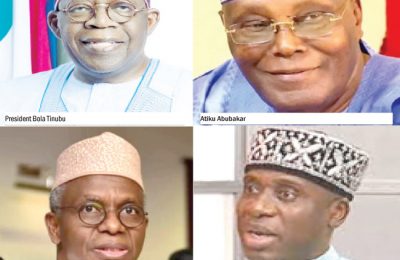
The Medical Practitioners Tribunal Service of the United Kingdom (UK) has declared Dr. Olugbenga Anthony Olugbenga fit to practise in the UK after discharging and acquitting him of alleged professional misconduct.
The Medical Practitioners Tribunal Service is the tribunal service for doctors in the UK, saddled with the responsibility of running hearings and making independent decisions on whether doctors are fit to practise medicine.

One Miss Goodness Taiwo Adeosun, a student of Dentistry at the College of Medicine, University of Ibadan, had, in a viral media publication in Nigeria, accused Dr Olugbenga, a then resident doctor in the Department of Medicine, University College Hospital, Ibadan, of alleged professional misconduct while under his supervision in 2019.
Dr Olugbenga, who had already relocated to the UK and had professionally been engaged in 2020, was, however, summoned by the UK Medical Practitioners Tribunal Service to clear his name of the alleged misconduct, following referral to the tribunal by the General Medical Council (GMC), the regulatory board of medical doctors in the UK, which had got wind of the viral social media publication.
A six-member Sub-Committee of the Committee to Develop A Sexual Harassment Policy for UCH, headed by Professor Olayinka Omigbodun, had earlier in Nigeria, adjudicated on the case, reprimanding Dr Olugbenga and Miss Adeosun over the latter’s alleged unprofessional misconduct on December 18, 2019, but determining that the allegations of sexual misconduct were unfounded.
Meanwhile, in the trial meticulously carried out by the Medical Practitioners Tribunal Service over the alleged Misconduct between April 3, 2023 and April 14, 2023, all allegations preferred against Dr Olugbenga were quashed as they were found to be false and unproven with a final verdict that his “practice is not impaired.”
In the judgement obtained from www.mpts-uk.org, the UK tribunal was presided over by Mr Sean Ell, legally qualified chair, and had as members Mrs Jennifer Ann Portway and Mrs Deborah McInerny.
At the UK tribunal, the GMC was represented by Mr Robin Kitching and the accused,
Dr Olugbenga, with GMC Ref. No:7579301 represented himself virtually.
In determining whether the allegation impaired Dr Olugbenga’s fitness, the Tribunal, relying heavily on evidence in accordance with Rule 17(700) of the Rules, ruled that Dr Olugbenga’s fitness to practise was not impaired by reason of misconduct.
“On behalf of the GMC, Mr Kitching submitted that the GMCs case had been brought on the basis that Dr Olugbenga knew Ms A was vulnerable and had non-consensual sexual
intercourse with her: Given the Tribunal’s findings of fact on those matters, he submitted, that the GMC was not seeking to argue that the facts found proved could amount to misconduct. As such, he submitted, Dr Olugbenga’s fitness to practise would not be impaired.
“In approaching the decision, the Tribunal was mindful of the two-stage process to be adopted: first whether the facts as found proved amounted to misconduct, and that the misconduct was serious, and then whether the finding of that misconduct which was serious could lead to a finding of Impairment.
“The Tribunal must determine whether Dr Olugbenga’s fitness to practice is impaired today, taking into account his conduct at the time of the events and any relevant factors since then, such as whether the matters are remediable, have been remedied and any likelihood of repetition
“The Tribunal had regard to the case of Royance v GMC (N:2) [2000] 1 AC 312 in which misconduct was defined as a word of general effect, involving some act or omission which fall short of what would be proper in the circumstances. It was also stated in Raylonce that the standard of propriety may often be found by reference to the rules and standards ordinarily required to be followed by a medical practitioner in particular circumstances.
“In determining whether Dr Olugbenga’s fitness to practise is currently impaired because of misconduct, the Tribunal first considered whether the facts found proved amounted to misconduct, considering each paragraph of the Allegation found proved in Paragraphs 1 and 2.
“The Tribunal first considered its findings in respect of paragraphs 1 and 2 of the Allegation. It noted that these were factual matters set out by the GMC at the outset of the Allegation. They related to Dr Olugbenga’s role at the hospital, Ms A’s position as a XXX and her vulnerability due to her mental health. The Tribunal was satisfied that there was no basis upon which any of those findings could constitute misconduct by Dr Olugbenga.
“The Tribunal next considered its findings in respect of paragraph 5(b) to (d) of the Allegation, namely that Dr Olugbenga had come out of the hotel bathroom without some of his clothes on, got into bed with Ms A and told her to come closer to him. Those actions were in the contest of Dr Olugbenga having had consensual sexual intercourse earlier in the evening with Ms A before arranging a hotel room for them to stay in together that evening. Dr Olugberga had not known about Ms A’s vulnerability due to her health when they had sexual intercourse.
“Dr Olugbenga told the Tribunal that he now accepted his faults in having had a consensual sexual relationship with Ms A given their professional relationship. He told The Tribunal that he is to be blamed for a lot of what transpired between him and Ms A as the more senior of the two. He identified to the Tribunal three areas, having undertaken courses relating to professional boundaries, where on reflection he perhaps should have acted differently. Firstly, he should have declined Ms A’s offer to make him a pair of slippers. Secondly, Dr Olugbenga stated he should not have exchanged telephone numbers with her and subsequently started communicating with her. Thirdly, he said he should not have accepted to go out for a drink with her.
“Notwithstanding Dr Olugbenga’s subsequent regret about his relationship with Ms A, the Tribunal was satisfied that his actions in the hotel room could not amount to misconduct, given the consensual nature of his sexual relationship with Ms A and that he was unaware of Ms A’s vulnerability due to her health
“The Tribunal then considered whether its finding in respect of paragraph 7 of the Allegation amounted to misconduct, The Tribunal found that Dr Olugbenga’s actions at paragraph 5(b) to (d) were sexually motivated. Given the Tribunal’s finding that the sexual relationship between Ms A and Dr Olugbenga was a consensual one, the Tribunal was satisfied that there was no basis upon which it could conclude that Dr Olugbenga’s behaviour amounted to misconduct
“Accordingly, the Tribunal concluded that Dr Olugbenga’s conduct did not fall so far short of the standards of conduct reasonably to be expected of a doctor as to amount to misconduct.
“The Tribunal therefore determined that Dr Olugbenga’s fitness to practise is not impaired,” the tribunal ruled.
It should be noted that the UK Tribunal is based on a standard of proof application to civil proceedings, namely, the balance of probabilities, that is, whether it is more likely than not, that the events occurred, or 51 per cent, and not under a criminal trial where the proof of proceedings is “beyond a reasonable doubt ” or above 90 per cent. This means it was much easier to find Dr. Olugbenga guilty had he been guilty of the allegations brought against him.
The GMC had relied on evidence supplied by Ms Adeosun, including her written statements, medical reports, and an article published by the Foundation for Investigative Journalism (FIJ), which she relied upon to prove her case against Dr Olugbenga.
The Tribunal, however, noted that “there were a number of inconsistencies between the various accounts that Ms Adeosun was recorded to have given over time. While being cross-examined, Ms Adeosun also acknowledged that the article published by the FIJ was inaccurate, yet she had not only submitted it to the GMC but also relied on it for evidence.
“The Tribunal noted that were a number of inconsistencies between the various accounts that Ms A was recorded as having given over time. Although, some of these involve the reporting back of what Ms A has said by third parties, the Tribunal took into account that Ms A only acknowledged that, for example, the article published in the Foundation for Investigative Journalism was inaccurate during cross-examination. Prior to that she had relied upon the article as supporting her account.
“The Tribunal took into account a further inconsistency in Ms A’s evidence, noting that, in the Foundation for Investigative Journalism article, she is recorded as saying that during the alleged incident, ‘I shouted but no one heard me’. In her evidence to the Tribunal, she was clear that she did not cry out for fear of others joining in to assault her. Ms A has also given varied accounts of whether there were others around where she and Dr Olugbenga were in the bar.”
Reacting to the judgement, Dr Olugbenga said: “I thank God for being faithful. I am happy that finally the UK authority found me guiltless, even though a lawyer did not represent me (I couldn’t afford the fee the lawyers quoted for me).
“I thank my family for their prayers, and support during my time of trial. I thank my friends who believed in my version of the story and never doubted me even when the internet was filled with so much lies and hates from those who never knew me.
“For my colleagues: the medical profession is one where a very high standard of morals is expected of you, far above that expected of any other professionals, I dare say even above what is expected of the priesthood. And because of this, they must self-audit their actions not only while attending to patients, but also when in their private social lives.
“I advise that they should not go out of their ways to offer help to a colleague, especially one who is junior to them, outside working hours. Any thing that goes beyond work hours and work schedule, should not be entertained. They should maintain professional boundaries.”
He also praised the UK judicial system, describing it as “very detailed system. They should maintain their high standards.
“I also thank the panel that initially sat at UCH that made their findings and declared that the allegations were not true.”
READ ALSO FROM NIGERIAN TRIBUNE








